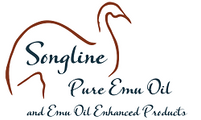May is National Melanoma and Skin Cancer Awareness Month
Posted by Dee Dee Mares on May 15, 2018
About 90 percent of nonmelanoma skin cancers and 85 percent of melanoma cases are associated with exposure to ultraviolet radiation from the sun. By raising awareness of the dangers of unprotected exposure and encouraging sun-safe habits, we can change behaviors and save lives.
Here are some things to consider this summer:
Wear hats and clothing – look for lightweight fabric clothing designed for sun protection; hats and scarfs.
Find or make shade – picnic under trees or umbrellas.
Plan with the sun – plan to be out early in the day or later in the afternoon and avoid 10 am – 2 pm when the sun is at its strongest.
Be vigilant with sunscreens – if you have to be exposed look for “healthy” sunscreens. To be honest I am wary of (and confused by) sunscreens. There is a great deal of controversy, but it appears the least toxic seem to be those using minerals like zinc oxide and/or titanium dioxide and the ones to stay away from are those with oxybenzone - a known hormone disruptor and retinyl palmitate - a form of vitamin A that may actually increase the risk of skin cancer.
Don’t feel confident just because of age – the average age of those diagnosed with skin cancer lies between 45 and 55, but it turns out a quarter of all cases occur under the age of 40, and studies show some forms of skin cancer are accounting for increased mortality in the elderly of up to 35% over previous decades.
Check non-exposed parts of the body for signs - melanoma can be diagnosed anywhere from the soles of one’s feet to beneath the fingernails.
Share your story - If you have been affected by skin cancer share your story in conversations and through social media. Include the hashtag #MySkinCancerJourney in your post and join a powerful community of healthy skin champions
Understanding the role of inflammation
It has long been known that inflammation is linked to cancer. Studies are now clarifying this falls into two categories:
Precancerous inflammation - where a chronic inflammatory state contributes to increased cancer risk by affecting genetic and epigenetic aberrations in cells - sun exposure increasing risk of skin cancers and inflammatory bowel diseases increasing risk of gastrointestinal cancers.
2 Inflammation that is present in almost all cancer tissues where inflammation plays a role to maintain and promote cancer progression.
Emu Oil Reduces Inflammation
Studies continue to show that Emu Oil reduces inflammation and helps repair sun damage to collagen and elastin fibers. Applying Emu Oil to your skin after a day in the sun will break inflammatory pathways quickly and offer soothing relief to any inflammation or burn.
What to Look For
The three main types of skin cancer are non-melanoma (basal cell carcinoma and squamous cell carcinoma) which make up 95% of all skin cancers are highly curable when treated early; and melanoma, made up of abnormal skin pigment cells called melanocytes. Melanoma is the most serious form of skin cancer and causes 75% of all skin cancer deaths. Left untreated, it can spread to other organs and is difficult to control.
Webmd (Click Here) has an excellent slide show of skin lesions and cancers.
Other Sources for Your Reading:
https://www.skincancer.org/get-involved/skin-cancer-awareness-month
https://www.ncbi.nlm.nih.gov/pubmed/24818733
https://www.ewg.org/sunscreen/report/executive-summary/#.Wvr2r6Qvx9N
https://www.webmd.com/melanoma-skin-cancer/ss/slideshow-skin-lesions-and-cancer

